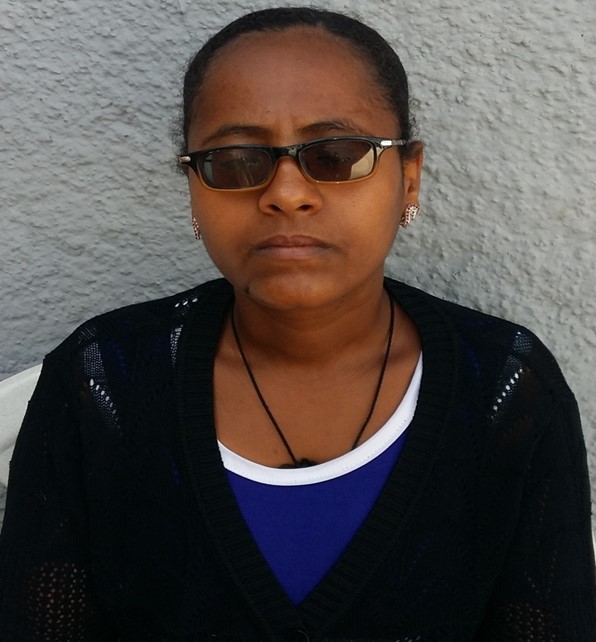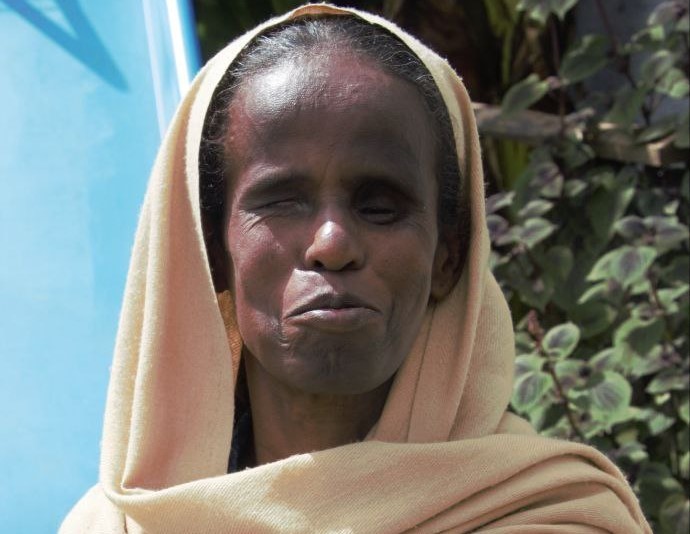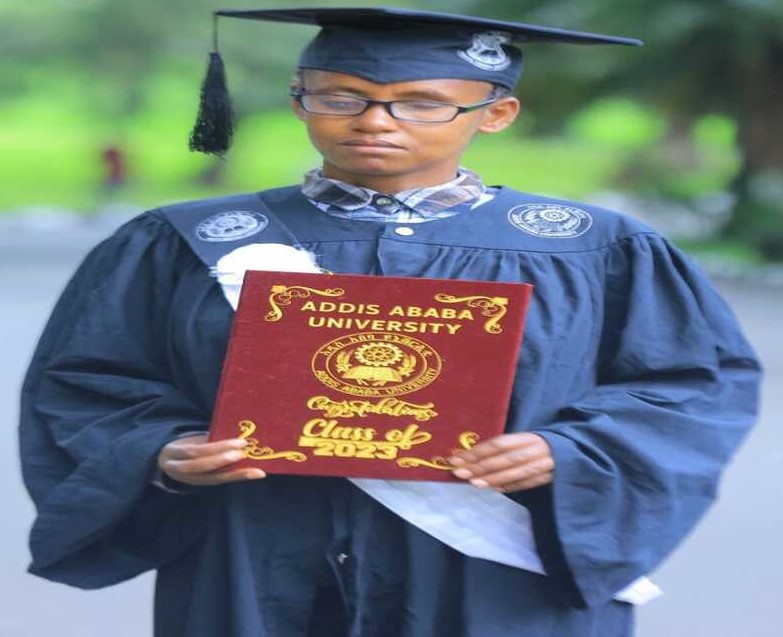A Glimpse into the Lives of Extraordinary Women
Discover the inspiring stories of visually impaired women who have overcome adversity and defied expectations. Through their portraits, we delve into their unique perspectives, challenges, and triumphs. These women are a testament to the power of human spirit, resilience, and the beauty of diversity.
Stories

Tigist Shimlies
Tigist's life took a dramatic turn at 16 when she lost her sight to a sudden illness. Abandoned by her husband and facing societal stigma, she struggled to raise her young daughter alone. However, hope emerged when she discovered a center for the blind that offered vocational training. Through dedicated learning and support, Tigist acquired skills in broom and mop making, enabling her to become self-reliant. She now works at a local enterprise and dreams of providing a brighter future for her daughter, who aspires to become a doctor. Read More

Fasika & Isubalew
Fasika grew up in the countryside and never went to school. Without education and due to her partially sightedness, she had no chances to gain her own income and so she finally came to Addis Ababa in hope of better chances to make her living. In the beginning she was a vendor selling corn and beans on the street, but she earned very little. After a while she found work as housemaid in a family where she was sheltered. But when she got pregnant against her own will she had to leave the family.Being left without a home, work and money, Fasika and her son Isubalew were sheltered and supported in Together!’s emergency section of the Rehabilitative Shelter for Women with Visual Impairment and their Children. Since Fasika neither reads nor writes, it is difficult for her to find employment. And even though she would love to visit evening classes, currently it is impossible for her as she has to take care of her half-year-old baby. Therefore, her only chance is to open a small business of her own: to bake and sell Injera, the pancake made of teff that is eaten by most Ethiopians three times a day as base of their diet with different sauces. With an Injera baker, Fasika could work from home half-days and sell the produced Injera in the afternoon in big quantities to nearby shops, from where again, the pancakes are sold piece by piece to individual customers. Even though, for the time being the income would be little, Fasika could create stable and sufficient income for herself and Isubalew until one day, both of them enroll at school. . Read More

Aster & Betelhem
Aster was born in Chincha, a village close to Arba Minch. Like most of the children with visual impairment who were not hidden by their parents and relatives at home, she joined one of the around ten exclusive boarding schools for the blind in Ethiopia where she was educated with her visually impaired male and female fellows up to grade six. Afterwards she joined a regular school in her hometown Chincha up to grade eight. Since in the rural areas educational means are very limited, especially for those children and youths with visual impairment, she was sent to Ethiopia’s capital Addis Ababa to continue education up to grade 12 and enter into institutions of higher education where she would also be able to get a stipend. While continuing her education in Addis Ababa she lived with relatives who paid for her expenses.Like many other students with visual impairment, Aster had to struggle within the unequal educational system in Ethiopia with little study materials for people with special needs: She did not pass her examinations to enter grade 12 immediately. In the following year she passed the exam, but due to her prior failure her sponsors had already given up her sponsorship. So having just completed High School she was left to find housing and a way to feed herself. For a while she lived together with a distanced friend. When she became pregnant shortly thereafter, she was forced to move out. Having no other means she lived on the streets for months begging to earn her bread. Eventually she gave birth on the street to her little daughter, Betelhem. Shortly after birth a street worker found Aster and the infant. She was sheltered and fed for one month until the child and herself had recovered. Then she had to leave.For a while Aster lived in cheap shelters, when she could gain enough money from begging, or on the street, if she could not get enough. With a second mouth to feed, she could not engage in vocational training or jobs that would generate some income for her and her child and so she spent the days with Betelhem tied to her back wandering through Addis Ababa in hope of gaining enough food and money for the day. Since August, Aster and Betelhem are sheltered at Together!’s Rehabilitative Shelter for Women with Visual Impairment and their Children. In October, Aster was finally able to join Kotebe College for Teacher Education and Training extension classes, since now, in the evening, one or two of the other women at the shelter can take care of her daughter. In three years she will graduate and has good chances to become a school teacher, while Betelhem herself can enroll at school. . Read More

Wude Ayalew
Wude is a visually impaired woman currently accommodated through the Rehabilitative Shelter for Women with Visual Impairment and their Children. Like many other visually impaired young women and men, she is enrolled at Kotebe College for Teacher Education and Training extension program. In order to pay for her course fees Read More
